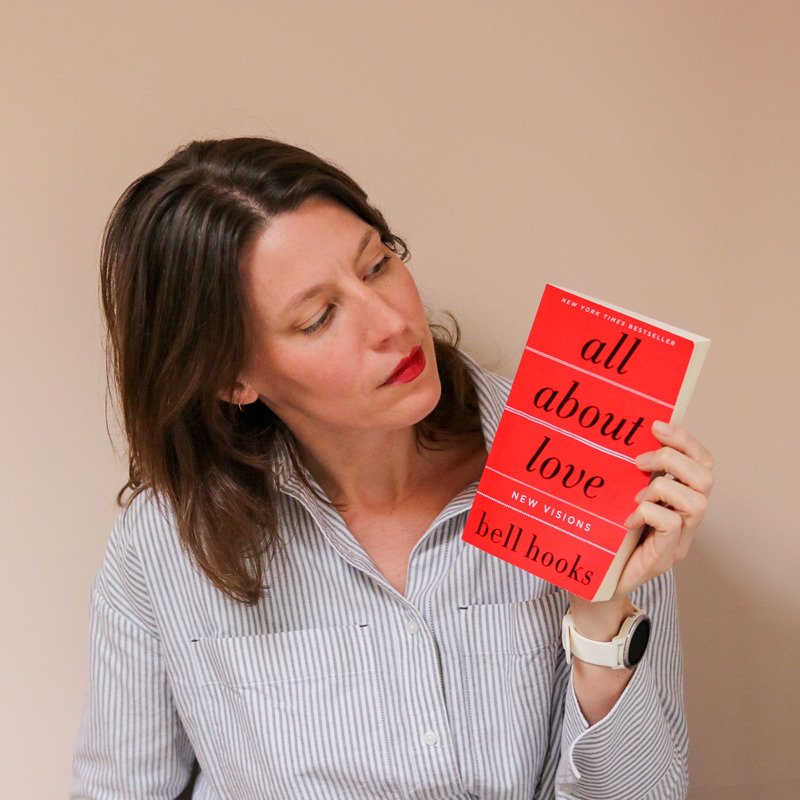All About Love Book Reflection
I finished All About Love by bell hooks today—it was quite a bit of an easier read than the history tome I last posted about. This one took just a few hours to get through in total.
Initially, I wanted to highlight and underline nearly every other sentence (but found myself disappointingly penless while sitting at the doctor's clinic waiting for almost an hour after my appointment time before I saw the doc, where I read most of it).
"Imagine how much easier it would be for us to learn how to love if we began with a shared definition," hooks starts on page 4. She offers us that definition: "When we are loving we openly and honestly express care, affection, responsibility, respect, commitment, and trust."
"Wow--starting with a shared, concrete, non-elusive, non-magical definition seems like just what we need!" I thought.
As I continued to read through the following 12 chapters, each on a specific context in which love could or should be applied--justice, honesty, commitment, spirituality, values, greed, community, mutuality, romance, loss, healing, and destiny--I wondered where the concrete definition went. What did it mean in practice?
I found her perpetuating the lofty platitudes she rallied against in chapter 1.
Her takes against Nicole Brown Simpson and Monica Lewinsky as seeking fame and greed were wildly anti-feminist. With respect to Brown, hooks' take was devoid of understanding of how intimate partner violence keeps women trapped in cycles of abuse. Since hooks has written so many books on feminism, it felt odd to be thinking while reading this book, "Does she understand how the patriarchy operates?"
The book was published in the year 2000 when our collective misogyny was much higher. I'm surprised a new printing of this book wasn't amended. I hunted around The Internet for maybe a statement of revision by the late author but didn't find one.
Despite these shortcomings, I did leave this reading feeling inspired by her challenge to traditional notions of love as a noun and something that happens to us. She clarifies that love is a verb and it's a set of actions we're responsible for doing.
The more inner work I've done, the more I've come to understand the truth of that popular Rumi quote, "Your task is not to seek for love, but merely to seek and find all the barriers within yourself that you have built against it."
I think hooks agrees that love is our true nature and our birthright and that along the way there are barriers. The best parts of this book are when hooks processes the mixed messages of childhood--why a parent will say, "I'm doing this because I love you," and then hurt their children. This sets us up for a lifetime of confusion about what love really is.
She writes, "There is nothing that creates more confusion about love in the minds and hearts of children than unkind and/or cruel punishment meted out by the grown-ups they have been taught they should love and respect."
The book that does a perfect job explaining how contempt in childhood leads to confusion about love in adulthood is The Drama of the Gifted Child by Alice Miller, which hooks references.
I loved the pieces about love at work--a place where we often leave love out. hooks gives us permission to choose love as the highest value in our vocations. I brought this teaching to the Job Grief Support Group I host each Friday, asking, "How much happier could we be at work if we chose workplaces based on whether we'll report to and be surrounded by caring and supportive people?"
At its best, All About Love is a spiritual call to action. "I know no one who has embraced a love ethic whose life has not become joyous and more fulfilling."
This is a very popular book! What were your take-aways?


